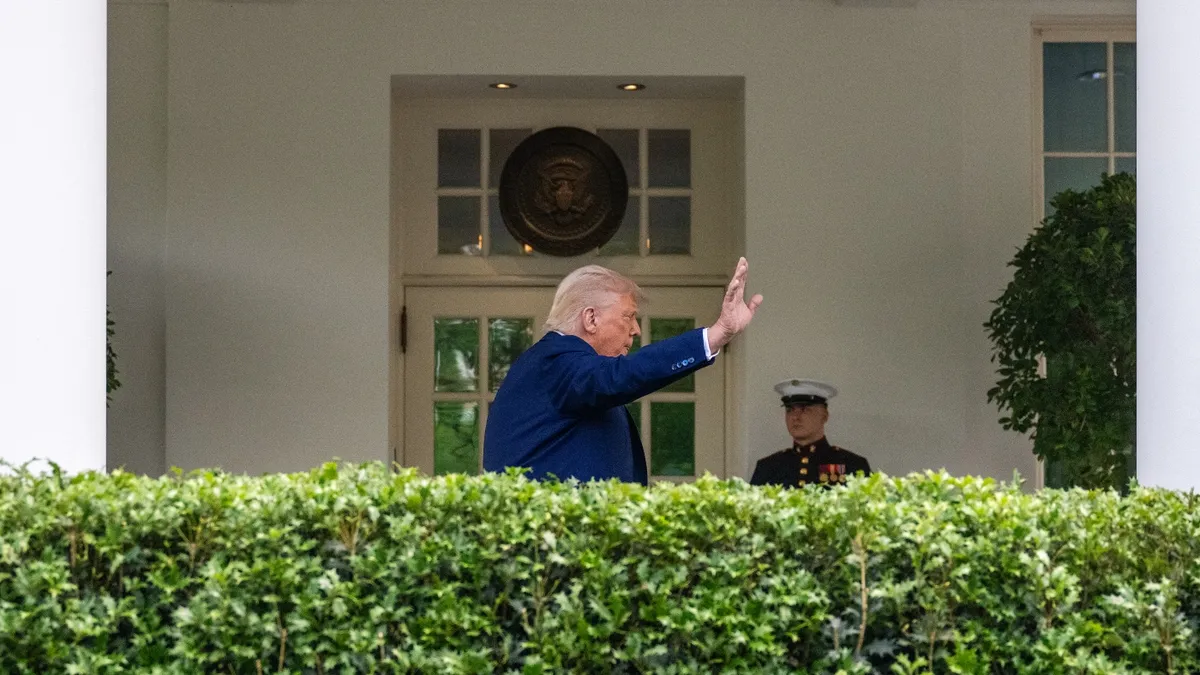
On Monday, President Trump is set to embark on the first significant foreign trip of his second term, with a keen focus on fostering business deals in key Middle Eastern nations, including Saudi Arabia, Qatar, and the United Arab Emirates. This journey comes at a time when his administration is grappling with the complex task of brokering an end to the ongoing conflict in Gaza. Throughout his campaign for a second term, Trump vowed to bring peace to the region; however, achieving that goal remains a formidable challenge.
During this trip, President Trump will highlight a substantial commitment from Saudi Arabia to invest $600 billion in the United States over the next four years, along with pledges from the UAE to invest $1.4 trillion over the next decade. According to Steven Cook, a senior fellow for the Middle East at the Council on Foreign Relations, the Saudis, Emiratis, and Qataris are eager to impress the president with lavish welcomes and significant announcements regarding new deals during his visit.
This trip mirrors the inaugural foreign visit of President Trump’s first term, where the Saudis rolled out the red carpet and announced billions of dollars in investments. Cook notes that Gulf leaders are well aware of what Trump wishes to achieve and are motivated to oblige, particularly as there are sensitive topics they would prefer to avoid discussing. For instance, when Trump seeks assistance regarding Gaza, these leaders can deflect criticism by showcasing their willingness to engage with him diplomatically.
Historically, Trump's relationship with Middle Eastern leaders has evolved since his initial trip in 2017, which aimed at solidifying ties following a controversial travel ban affecting certain Muslim-majority countries. The White House has stated that this trip is essential for reinforcing relationships within the region. Press Secretary Karoline Leavitt emphasized that Trump aims to promote a vision of a proud, prosperous Middle East, where the United States collaborates with local nations to combat extremism through commerce and cultural exchanges.
However, the prevailing unrest in the region complicates these diplomatic efforts, according to Karen Young, a political economist at the Middle East Institute. She pointed out that while the rhetoric may remain unchanged, the geopolitical landscape has shifted significantly. Trump's ambitious goals for his second term, including ceasing hostilities in Gaza, curbing Iran's nuclear ambitions, and encouraging Saudi Arabia to normalize relations with Israel through the Abraham Accords, are proving to be challenging.
Experts like Dennis Ross, who has worked on Middle Eastern policy for both the George H.W. Bush and Clinton administrations, suggest that Saudi Arabia’s historical call for an independent Palestinian state makes it unlikely for them to engage in the Abraham Accords at this moment, especially given the ongoing conflict in Gaza. Ross notes that discussions regarding normalization are more likely to occur privately rather than in public forums.
In light of these political hurdles, the economic agreements that may emerge from this trip gain heightened significance for Trump. As noted by Ross, the president currently lacks substantial successes to showcase, making it imperative for him to highlight the business opportunities created during this trip as a win for the United States.
During Trump’s inaugural visit to Riyadh in 2017, nearly $110 billion in arms deals were announced, with the potential for total investments reaching as high as $350 billion. The State Department has since indicated that approximately $30 billion in foreign military sales have been executed with Saudi Arabia. However, experts like John Parachini from the Rand Corporation caution that the actual implementation of these deals involves intricate negotiations and coordination among various federal agencies, Congress, arms manufacturers, and the recipient countries. Parachini highlights that while Trump projects a strong message of support for American business, the complexities of arms sales often take years to materialize.